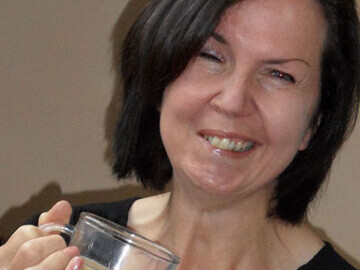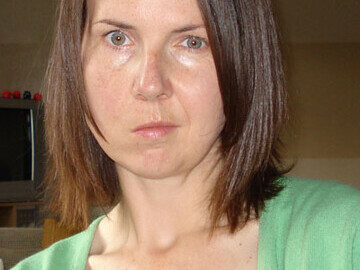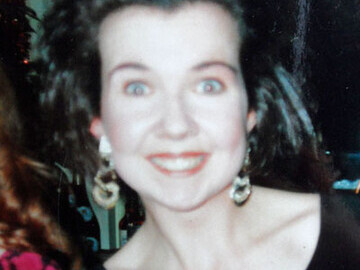Facing facts: 44% of Bell’s Palsy Patients Do Not Receive Recommended Treatment
News provided by Facial Palsy UK on Thursday 15th Aug 2013
A recent study in the British Medical Journal[1] has revealed that almost half of patients with facial paralysis are not receiving recommended treatment that could prevent permanent disability. The charity Facial Palsy UK, which supports people affected by facial paralysis, says vast improvements are needed in the treatment of Bell’s palsy patients.
The research studied how people diagnosed with Bell’s palsy between the years 2001 and 2012 were managed by GPs. They showed that despite clear evidence published in 2007 that treatment with the steroid (prednisolone) improves chances for complete recovery, a significant proportion of patients (44%) failed to receive any treatment.
According to Charles Nduka, Consultant Plastic Surgeon and Chief Executive of Facial Palsy UK;
“The results of this study are shocking, because previous studies have shown that about a third of untreated Bell’s palsy patients will suffer long-term problems including facial disfigurement, facial spasms and chronic pain. The study suggests that are at least 20,000 new patients affected each year, many of whom will be left with permanent symptoms. This is why all patients should be considered for prompt steroids treatment. We take for granted the ability to smile or eat and drink in public. However, for those affected by facial palsy, even the simple act of smiling for a photograph can be distressing.”
Psychologist Professor Nichola Rumsey, co-director of the Centre for Appearance Research in Bristol is a member of the Medical Advisory Board of Facial Palsy UK and adds;
"The psychological and social challenges resulting from facial palsy can be considerable. People's daily lives can be negatively affected in many ways. There is an urgent need to develop much more effective ways of offering appropriate support."
Nicola Hawkes (40) has had Bell’s palsy three times, the first episode happened the day before her 18th birthday. Nicola was prescribed steroids and made a full recovery. After the second episode, aged 23, Nicola wasn’t prescribed any medication and she was left with facial weakness, spasms, and eye problems. In 2009 Bell’s palsy struck without warning for a third time and this time Nicola completely fell apart emotionally. She was not prescribed steroids, but instead only given antivirals in spite of the recommendations published two years previously.
Doctors didn’t know why the Bell’s palsy kept returning as fewer than 10% experience more than one episode.
Nicola says;
“Third time around, it was not only me finding the whole situation upsetting, I had a 9 year old son to worry about too. He found it REALLY hard and would often say, "Mummy, I can't remember what you look like!" It hurt so, so much. My face remains very weak, and I still experience some pain, a sore watery eye and weakness on one side of my mouth. I have received no follow-up care.”
ENDS
Notes to Editors:
About Facial Palsy UK
Facial Palsy UK is a new charity launched in 2012 (www.facialpalsy.org.uk)
Charity Aims
• To increase awareness of facial palsy and its social, physical and psychological consequences.
• To provide information and support for people living with facial palsy, their relatives, carers and medical professionals.
• To promote diagnosis, acute and long-term management and rehabilitation of people living with facial palsy.
• To establish support groups throughout the UK.
• To raise funds to support research and training for professionals involved in the diagnosis, management and treatment of facial palsy. This should allow for better treatments, which should be made accessible to all.
Further information about Bell’s palsy recovery rates
Bell’s palsy is the most common cause of facial paralysis, a condition that can resolve with the right treatment, but not in every case. The outcome for a person with Bell’s palsy can be dependent on getting the correct treatment within 72 hours. The largest scale recent study[2] of Bell’s palsy demonstrated that without the recommended treatment with steroids, only 57% achieved full recovery at 12 months. Even with timely treatment, only 72% of patients achieved full recovery at 12 months. For those who do not fully recover, they are often left with chronic disability.
The most recent study shows that although the Scottish Study of 2007 influenced a change in management, shockingly 44% of people diagnosed with Bell’s palsy still remain untreated.
Well-known sufferers of Bell's palsy include Andrew Lloyd Webber, Pierce Brosnan, George Clooney, Graeme Garden and Colin Turkington.
For case studies, photos and more information contact:
Karen Johnson
Facial Palsy UK
PO Box 1269
PETERBOROUGH
PE1 9QN
Tel: 0300 030 9333
Email: media@facialpalsy.org.uk
References
1-Morales DR, Donnan PT, Daly F, et al. Impact of clinical trial findings on Bell’s palsy management in general practice in the UK 2001–2012: interrupted time series regression analysis. BMJ Open 2013;3:e003121. doi:10.1136/bmjopen-2013-003121
2-Engström M, Berg T, Stjernquist-Desatnik A, et al.Prednisolone and valaciclovir in Bell's palsy: a randomised, double-blind, placebo-controlled, multicentre trial. Lancet Neurol 2008; 7(11): 993–1000.
The research studied how people diagnosed with Bell’s palsy between the years 2001 and 2012 were managed by GPs. They showed that despite clear evidence published in 2007 that treatment with the steroid (prednisolone) improves chances for complete recovery, a significant proportion of patients (44%) failed to receive any treatment.
According to Charles Nduka, Consultant Plastic Surgeon and Chief Executive of Facial Palsy UK;
“The results of this study are shocking, because previous studies have shown that about a third of untreated Bell’s palsy patients will suffer long-term problems including facial disfigurement, facial spasms and chronic pain. The study suggests that are at least 20,000 new patients affected each year, many of whom will be left with permanent symptoms. This is why all patients should be considered for prompt steroids treatment. We take for granted the ability to smile or eat and drink in public. However, for those affected by facial palsy, even the simple act of smiling for a photograph can be distressing.”
Psychologist Professor Nichola Rumsey, co-director of the Centre for Appearance Research in Bristol is a member of the Medical Advisory Board of Facial Palsy UK and adds;
"The psychological and social challenges resulting from facial palsy can be considerable. People's daily lives can be negatively affected in many ways. There is an urgent need to develop much more effective ways of offering appropriate support."
Nicola Hawkes (40) has had Bell’s palsy three times, the first episode happened the day before her 18th birthday. Nicola was prescribed steroids and made a full recovery. After the second episode, aged 23, Nicola wasn’t prescribed any medication and she was left with facial weakness, spasms, and eye problems. In 2009 Bell’s palsy struck without warning for a third time and this time Nicola completely fell apart emotionally. She was not prescribed steroids, but instead only given antivirals in spite of the recommendations published two years previously.
Doctors didn’t know why the Bell’s palsy kept returning as fewer than 10% experience more than one episode.
Nicola says;
“Third time around, it was not only me finding the whole situation upsetting, I had a 9 year old son to worry about too. He found it REALLY hard and would often say, "Mummy, I can't remember what you look like!" It hurt so, so much. My face remains very weak, and I still experience some pain, a sore watery eye and weakness on one side of my mouth. I have received no follow-up care.”
ENDS
Notes to Editors:
About Facial Palsy UK
Facial Palsy UK is a new charity launched in 2012 (www.facialpalsy.org.uk)
Charity Aims
• To increase awareness of facial palsy and its social, physical and psychological consequences.
• To provide information and support for people living with facial palsy, their relatives, carers and medical professionals.
• To promote diagnosis, acute and long-term management and rehabilitation of people living with facial palsy.
• To establish support groups throughout the UK.
• To raise funds to support research and training for professionals involved in the diagnosis, management and treatment of facial palsy. This should allow for better treatments, which should be made accessible to all.
Further information about Bell’s palsy recovery rates
Bell’s palsy is the most common cause of facial paralysis, a condition that can resolve with the right treatment, but not in every case. The outcome for a person with Bell’s palsy can be dependent on getting the correct treatment within 72 hours. The largest scale recent study[2] of Bell’s palsy demonstrated that without the recommended treatment with steroids, only 57% achieved full recovery at 12 months. Even with timely treatment, only 72% of patients achieved full recovery at 12 months. For those who do not fully recover, they are often left with chronic disability.
The most recent study shows that although the Scottish Study of 2007 influenced a change in management, shockingly 44% of people diagnosed with Bell’s palsy still remain untreated.
Well-known sufferers of Bell's palsy include Andrew Lloyd Webber, Pierce Brosnan, George Clooney, Graeme Garden and Colin Turkington.
For case studies, photos and more information contact:
Karen Johnson
Facial Palsy UK
PO Box 1269
PETERBOROUGH
PE1 9QN
Tel: 0300 030 9333
Email: media@facialpalsy.org.uk
References
1-Morales DR, Donnan PT, Daly F, et al. Impact of clinical trial findings on Bell’s palsy management in general practice in the UK 2001–2012: interrupted time series regression analysis. BMJ Open 2013;3:e003121. doi:10.1136/bmjopen-2013-003121
2-Engström M, Berg T, Stjernquist-Desatnik A, et al.Prednisolone and valaciclovir in Bell's palsy: a randomised, double-blind, placebo-controlled, multicentre trial. Lancet Neurol 2008; 7(11): 993–1000.
Press release distributed by Pressat on behalf of Facial Palsy UK, on Thursday 15 August, 2013. For more information subscribe and follow https://pressat.co.uk/
Bell's Palsy Facial Palsy Prednisolone Steroids Health
You just read:
Facing facts: 44% of Bell’s Palsy Patients Do Not Receive Recommended Treatment
News from this source:





